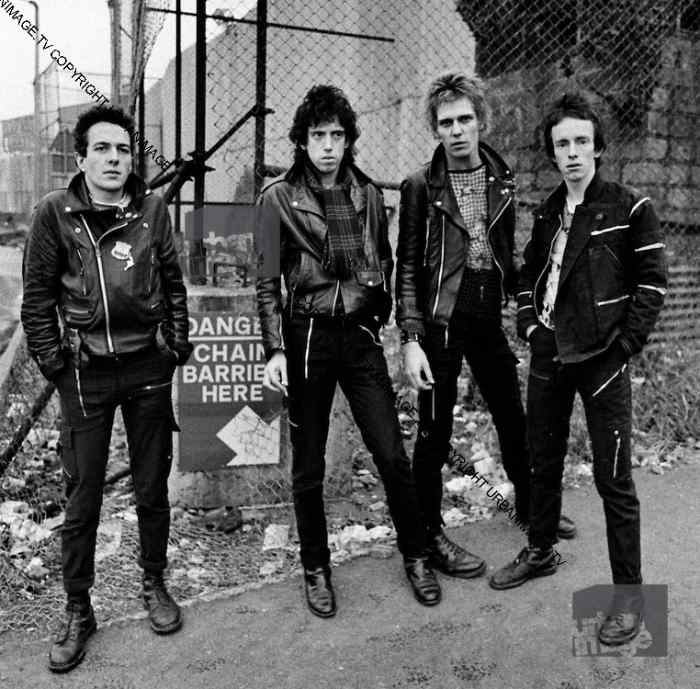Tears Spilled in Aisle Six: The Supermarket as a Conformist Hell
Now that we live in a world of factory farms and pre-packaged snack foods, supermarkets are a near essential portion of our lives. Unless you make the trek to the farmers’ market every day or, god forbid, grow your own food, they are the only place where you can gather up the sustenance you need to get through your weary working life. Perhaps this is the reason that they have become a symbolic representation of modern conformity.
Everyone goes to the supermarket in the same way that everyone falls asleep or goes to the bathroom. They are collections of long, thin aisles packed with people who barely say a word to each other. If a child cries in the grocery store, he or she will be scolded or, in some cases, hit. Acting out in a supermarket is a societal no-no. They are a place of peace, quiet, and keeping to oneself. All business, no pleasure.
Like they should, artists throughout the twentieth and twenty first centuries have reaped the symbolic benefits of the supermarket in their work. While there are surely other examples, the works chosen here represent three widely different mediums all searching for meaning in the same place. Next time you are in line at your local brick and mortar grocery store, consider the notion that you may be wallowing in the midst of a bland wasteland. The cashiers may ask why you are sobbing; ask them why they are not.
Ginsberg and Whitman Walk into a Supermarket
Firstly, Allen Ginsberg’s poem, “A Supermarket in California,” explores the confines of the supermarket from the perspective of a societal outsider: a gay man. Because we live in a vaguely more progressive era, we must recall that times were much harder for gay men in 1955, when the poem was written. He begins the poem by pointing out “Aisles full of husbands! Wives in the avocadoes, babies in the tomatoes!” All around him, Ginsberg sees perfect nuclear families blending into the supermarket with eerie ease. To him, they literally sit among the food and aisles, neatly in place, fitting in more than he ever could.

Then, he spies a childless old man “poking among the meats in the refrigerator and eyeing the grocery boys.” That old man is the most famous gay American poet, Walt Whitman. Because the heterosexual males and females around him conform so perfectly to the ideal of the supermarket, Ginsberg feels drawn to Whitman and his lonely meandering. Amongst the supermarket, they stroll “down the open corridors in [their] solitary fancy.” The two gay men latch onto each other and revel in the feelings of loneliness and isolation they have when faced with the all-American values of the supermarket.
With each other as support, they finally gain the courage to leave the supermarket and walk together among the “solitary streets.” To them, the supermarket represents a spotless haven from which they are excluded merely for being different. Ginsberg’s examination of the supermarket leads nicely into another piece of work that examines conformity among groceries, The Clash’s 1979 song, “Lost in the Supermarket.”
Buying a Personality at the Supermarket

The lyrics of the song detail the coming of age of a young boy amongst a world with hyper-materialistic values. The speaker feels as though he has no control over his own life, as evidenced in the line, “I wasn’t born, so much as I fell out.” He feels that this world was thrust upon him. In order to survive, he visits the supermarket for “that special offer / A guaranteed personality.” No matter how much he buys from the supermarket, he feels an uncomfortable sense of loneliness.
Though there is no evidence that he has an attribute (like Ginsberg’s homosexuality) that would necessitate feelings of isolation, the speaker still feels like an outsider. The song furthers the idea of the supermarket as a bastion of conformity for this reason. Though no one in the supermarket interacts with each other, everyone feels a bit lonely inside them. Why not talk to each other? The song proposes that there is no answer except for the idea that everyone is too set in their ways to break any societal trend.
Being a punk band, The Clash had obvious qualms with the confined, purely suburban nature of the supermarket. No one should feel lonely, but it is not possible to thrive in a world where everyone is merely trying to buy their way to happiness. No matter what the supermarket has in stock, so long as it keeps its buyers in a bubble of isolation, no one will be able to break free from their own specific loneliness. A film from 1985, Repo Man, shows what would happen if one brave soul tried to break out of the rut of Supermarket Life.
A Reagan-ified Vision of the Supermarket
In the beginning of the film, Otto, the protagonist, works in a supermarket that is the picture of conformity. Director Alex Cox takes blandness to comical heights. Each box of cereal has a white label that merely says, “Corn Flakes.” Beer can labels read, “Beer.” And so on and so forth.

Otto works alongside a fellow drone who seems to have absorbed consumer culture into his very core. As the scene in the grocery store begins, the coworker is jovially singing a jingle for the soda, Seven-Up. Up walks the owner of the grocery store to berate Otto for not aligning the cans correctly because, in the supermarket, everything must be perfect. It is one of their more disturbing characteristics. Everything is straight lines or beautifully constructed pyramids.
Having had enough, Otto turns to his boss and says, “F— you!” His coworker laughs, so Otto throws him into the pyramid of cans. At this, a cop points a gun at Otto and forces him to leave the store. In the supermarket, any sign of chaos or otherness must be expelled. In Alex Cox’s world, this point is taken to its logical extreme, with policemen making sure everyone follows the implied rules.
Otto is kicked out for being unruly. People do not usually think of supermarkets as having “rules” because nearly all of the rules are implied. Whenever they are broken, people just know. It is this implied status quo that keeps people in line at the supermarket, forcing them to act their best at all times. A person in a supermarket knows exactly what to do and how to do it. No one feels truly right in the supermarket because the standards for behavior in them are turned up to a perfect ten. They possess us with an Orwellian sense of fear towards acting out. One surely cannot cry in a supermarket, and one cannot even laugh too loud in one without blushing.
As these three examples show, the necessary act of buying food at the grocery store paralyzes most people into a state of conformity. If one cannot conform, one feels isolated, lonely, or despised. For whatever reason, no one can be themselves in a supermarket. We are either searching, lost, or trying to break free. As an essential portion of modern life, the supermarket and its rules cannot be ignored. Art shows the dark side of a place in which everyone must act according to a specific set of rules. While one may not think of a supermarket as an evil entity, these works pose the idea that they are more insidious than they seem.
These works each came from a place outside of mainstream culture. Ginsberg was a Beatnik, The Clash and Alex Cox are punks. They each performed exactly the task one would expect from the counterculture: pointing out and mocking a portion of accepted mainstream culture. While they are united under the idea of the supermarket, these three works approach the subject matter in a variety of ways. Thoughtful meditation, ironic distance, and chaotic disruption, respectively. But their end goals were all the same, and that is why art holds so much power. Each began from a vastly different perspective and gave a unique spin on the conformist culture of supermarkets, each as effective as the other but still wonderfully unique.
Many artists have found symbolic importance in the aisles of a supermarket. What does it say about us as a society that major portions of our lives are spent hiding our true selves? Being nonconformists, these artists were unafraid to probe deep into their nations’ psyches and try to tear down the well-formed facade in the hope of finding some deeper truth. They came back with the realization that Supermarkets hold more power over the way we behave than anyone might have previously suspected. We are all lost in the supermarket, but it will take nothing more than a great piece of art to help us find our way out.
What do you think? Leave a comment.











Ginsberg is amarvellous poet.
I have great respect for The Clash. I didn’t read too much into the meaning of the lyrics when i was younger, i just seemed to enjoy the melody. Now it’s clear to hear the anti-consumerism message. Possessions do not define your personality! I appreciate this great song so much more now!
Lots of visual fun in A Supermarket in California but profound at the same time, particularly the end.
After reading this, I went away and read ‘A Supermarket in California’, listened to ‘Lost in the Supermarket’ and watched the ‘Repo Man’ scene mentioned here. Fantastic stuff.
Really interesting article, fascinating subject!
What an original idea for an article. Great job!
This was very interesting to read as I have recently been moving away from Supermarkets and going to the farmers market more (I also go to a store where I can buy products in bulk and use my own containers). It’s amazing how ingrained into our society the Supermarket is – I was somewhat baffled when I heard the first Supermarket appeared in the 70s or so…. For some reason I needed a reminder that there was a way to get produce without grocery stores!
I really wanted to like Repo Man, even thought for a few minutes that I would love it, but ultimately its nothing more than a proto ‘Dude, where’s my car?’ with more four letter words and less narrative clarity. In short; I hated it.
That song is a perfect example of the isolation one might feel from a lonely suburban lifestyle.
Nicely sums up how I feel about the world most days.
“A Supermarket in California” touches where it is bound to coil.
Very good article! Enchanting!
Great source material. There is a lot to ponder here. Such as, what causes me discomfort in the “supermarket” atmosphere.
The isolation in the supermarket is something we definitely experience every day, though i’s interesting how much this isn’t pointed out. Nowadays the world seems to be like this- people buried in their smartphones while walking, and even sadder when you work in close proximity with people if you have a job and don’t interact with them, such as a job in the office, or being self-employed. Just reading this article makes me think of all the ways that isolating ourselves is becoming the new “norm.”
A few years ago I was in the ensemble of the play Side Show. During the blocking, the director had us do things that were designed to make the audience feel slightly uncomfortable, such as entering from the “wrong” side of the stage.
For me, the supermarket offers many of those same unspoken rules. You must walk down the aisle with your cart hugging the right side of the aisle, moving in the direction that traffic would go, or people are upset. People count items in your cart when you wait in the express line, lifting a judgmental eyebrow if you have 16 items instead of 15. If you break out of the norm, you receive stares and an occasional snotty comment thrown your way.
I have never put the word of conformity to describe my shopping experience before, but perhaps next time I go to the store, I will see how I can break out of the mold.
Shop naked.
Very insightful. I’ve studied Allen Ginsberg’s work. “A Supermarket in California” is the fist poem I read of his. Great article!
Very insightful. I’ve studied Allen Ginsberg’s work. “A Supermarket in California” is the fist poem I read of his. Great article!
The life of a repo man is always intense.
I remember the first time I ever went grocery shopping after moving out. ‘Lost in the Supermarket’ captures it. The complete innundation and overwhelmed feeling you get with all of it staring you in the face. It’s hard to encapsulate, but the feeling of this song is there. I still feel it sometimes.
The poem mainly hits absurdity. It has even included one of the great literature man of his time, sir Walt Whitman, a very wise move or an unruly one for the part of Ginsberg.
I was confused by the meaning of Ginsberg’s poem. I was thinking it was just a funny, kind of silly remembrance of Whitman, fooling around a bit with simple grocery store items. Then I read the bio of Frederico Garcia Lorca (a man mentioned in the poem) and an entirely new meaning became blindingly obvious. Lorca, was really devastated about failed homosexual relationships. His two major love interests, one interestingly enough was Salvador Dali, went on to have marriages with women. This is a poem, asking the question of, What does America hold for me the homosexual? The answer is a sad: ‘we’ll both be lonely.’ I won’t quote continued lines from the poem, but if you want to feel seem empathy for Ginsberg, Wikipedia Lorca and then reread the poem and focus and the words that are addressing a sense of disenfranchisement from the empty promises America was making, viewed in the context of post World War II feelings that were surfacing and no doubt helping to form the Beat Generation.
This is a very creative piece; and the subject mater of supermarkets, brilliant.
I love the exploration of super markets from an outsider’s perspective, how the monotonous conformity of the task of grocery shopping contrasts with feelings of isolation. Such a unique perspective! Nice work.
I have always felt awkward and out of place in a supermarket. Simply because people need a source of nutrition, they are conforming without even knowing it.
The slow death of being in a supermarket — no more!!
The slow death inside the supermarket – no more!!
Best ’80s punk cult film ever!
Wow, this takes me back to 1983 when I saw my first two punk rockers ever, that day changed me forever and made me fall in love with the punk rock scene even though I was just 10 years old.
I strongly agree with your comment: “Acting out in a supermarket is a societal no-no. They are a place of peace, quiet, and keeping to oneself. All business, no pleasure.” I had a professor once who enjoyed acting out in supermarkets. One of his favorite stories was venting his irritation in an slow moving line by shouting: “I spent 5 years in Brushy Mountain State Prison, and I was never treated like this.”
This is a very entitled way to “act out” though, since he is not taking into consideration the humanity of the cashier. Trust me, no cashier enjoys being there and it’s even worse because they are stuck there for upwards of 8 hours while this self satisfied “anarchist” professor can go on his merry way. Being rude and uncaring towards people in the service industry is not a productive way to challenge society. It just reinforces consumer dominance and class warfare–the idea that if you work a low paying, low skill job you are automatically less than, or unintelligent and in need of a lecture. People don’t work as a cashier in a checkout line for fun or edification or to endure some smartass who thinks his jokes are the height of class. They do it because they have to in order to survive. Show some respect.
Got to be my favourite Clash song
A bit funny to me that we’re still grappling with the same issues lit post-modernists were in the 70s and 80s & Gen Xers were in the 90–I guess surface-level pop-cultural analysis never dies
ginsberg is the wilderness inside yellow rapeseed flowers, a cry of dust from the soul town
The subject of the normative space, sans affect or emotion or personality, as this core meeting place of Americans is smart and neatly crafted, moving from one text to the next as it does. I applaud Cole for the clever work — and for pointing out the value of counterculture to prompt broad reflection on how we participate in and perpetuate cultural norms, harmful or not.
For those interested, I encourage you to read Michael Serazio’s excellent “Ethos Groceries and Countercultural Appetites: Consuming Memory in Whole Foods’ Brand Utopia” in *The Journal of Popular Culture* 44(1) and, of course, to follow the biting satirical take on gentrification, culture, and supermarkets (including Whole Foods) in this season of *South Park.*
There are some crazy shit going on in repo man.
What an interesting subject! Just goes to show how entrenched many of us are in societal norms and traditions, I never even realized how socially alienating supermarkets were.
I enjoyed your point about implied rules of the supermarket. It is always interesting to study implied societal constructs. For example, in elevators there is an unspoken agreement that dictates who stands where: one person by the buttons, one person in the back-right corner, one person in the back-left corner, one person in the middle of the back row, and so on. These are rules we do not teach our children, but rather rules that are learned through observance in a culture that rarely deviates from the norm.
I live near the flagship Wegmans store, which is something of a cultural icon in my town. A lot of the time it seems like they’re trying to do everything in their power to make the supermarket experience less scary and isolating, but in a lot of ways that only makes it worse.
“The cashiers may ask why you are sobbing; ask them why they are not.”
Having worked in a grocery store, I can assure you that cashiers often break down and cry. Particularly after customers act out, often in rude and condescending ways. This happens probably far more often than pseudo-intellectual customers pause to reflect on capitalism in the cereal aisle.
This is an interesting look at supermarkets in a few examples of pop culture, but from the perspective of someone who had to conform as an employee, in a myriad of ways both large and small, it’s hard to be convinced that customers have it all that bad. I’ve shopped at grocery stores (who hasn’t?) and I would take that somewhat bland experience over the unrelenting hell of working there any day.
The lone example of a worker (Alex Cox in the third example) is problematic because he’s shown bullying a nerdy co-worker (who ends up being bullied by the police officer, juts because). That ideal of the genuinely happy worker drone rings so false that I can only interpret this scene as Alex being oblivious to the humanity and the real thoughts and feelings the man who dares to sing a jingle while working. Also, having worked in a grocery store where many of my co-workers had down-syndrome or autism (it is very common for such workers to find employment as a stocker or bagger), this scene reads like the abled picking on a non-neurotypical worker. Stuff like what happens in this scene — singing or giggling inappropriately — would happen all the time. Yes, those co-workers sometimes annoyed me, but to be rude or violent towards them wouldn’t make me a hero of non-conformity but a grade A, USDA choice asshole.
Ginsberg is the man.
Supermarkets are one of the few places (other than convenience stores) that are open all night. I have found myself pacing the aisles not for nutrition, but for human contact under fluorescent lights. It’s no wonder these big boxes of delectables are depicted in film and music.
very interesting!
I’ve only recently begun to develop a distaste for supermarkets, and though I don’t have a particular reason why, I think some of the themes that you explore in this article probably reflect the foundation of my distaste to some extent.
I also felt compelled to read this because I had been playing a text adventure game that takes place in a single aisle of a supermarket (thanks to an article by IRBurnett on text adventure games). In my opinion, there’s some interesting continuity.
Thank you for sharing!
Reading this article reminds me off all the times I’ve gone to Wal-Mart. I go there for the cheap stuff but it’s so drab and depressing and I know it goes deeper than the scuffed floors and unflattering light. This is such an interesting piece because not only is it relatable, the writer exercises excellent use of comparing and contrasting.
Super Interesting!!!
Yeah, I’d say WalMart is a different experience. The kids are off the walls, the people are out there, but it’s an experience in a different way.
Also, look how much on-line shopping we do. Or delivery services like google express, peapod, and amazon pantry. What does it say about us that we aren’t even bothering with the conformist supermakets anymore?
I think of A and P, the short story by John Updike, and its exploration of a young male’s psyche in a grocery store, the forbidden sexual thoughts and the eventual rejection of the conformist culture.
It also be interesting to look at supermarkets from an architectural perspective, and how they literally conform and supress their users psychologically. I wonder if there are any architects who have rejected the standard supermarket layout with anything revolutiionnary?
You might enjoy Alexandra Kleeman’s hilarious, uncanny descriptions of supermarket culture in her novel You Too Can Have A Body Like Mine.
Here’s another question: in today’s supermarket, do people who don’t fit the “perfect nuclear family” actually stand out? After all, shopping for food is something that almost everyone does. I would say that more people fall outside the realm of perfect nuclear family than fall into it—and it’s unlikely that 100% of that family unit would be in the store simultaneously, anyway. Work to do, chores to split and do separately.
If we wanted to do a contemporary analysis of the supermarket, I’d be more concerned about things like… Which shoppers are painted as potential shoplifters because of their race? Who’s grabbing frozen food with poor nutritional content for themselves and their kids because they’re working three jobs and they don’t have time to cook? Who might be afraid to use the washroom in a public place? What about the people who have crippling OCD or anxiety that makes shopping for food a challenge? What about the people who have a physical disability that makes shopping difficult or impossible? Who has to fit all their groceries for the week in a backpack because they have to take everything on a bus? Who’s buying organic produce? Who has to read every label carefully because they have an allergy that most people aren’t familiar with? Who’s being impatient and rude to the cashier? What about the employees who will be taking expired food home because they get a huge discount and it’s the only thing they can afford on minimum wage?
Conformity? We all face very different challenges.
My thoughts exactly… So much exclusivity exists within the supermarket framework which reflects broader society. The supermarket is merely a mirror image of these nuances. Durkheim’s theory of functionalism can easily be applied to this article as an indicator of attempts at social cohesion.
Ooh. Loved this. From poetry, to music, to film. An excellent method with which you dissect a concept of “the supermarket” and how conformity is represented within three totally different methods of media. Ginsberg is excellent.
This is a unique article, bringing to light something most of us have felt but have probably never defined in such a way. I couldn’t help but be reminded of Marc Augé and his concept of the “non-place” (for anyone interested, you can read about it here: http://www.acsu.buffalo.edu/~jread2/Auge%20Non%20places.pdf ). In short, a non-place is a transient space of insignificance like an airport, highway or yes, supermarket. In these places everyone is passing through, and normally, you can find tens or hundreds of other places like it. A Walmart in San Francisco can look alarmingly similar to one in Boston. In many ways, the consistency remains not only in specific chains but amongst competitors who, though claiming to offer a different experience, fall back on those repetitive aisles, wire carts, and unspoken rules that the author of this article finds so paralyzing. This is a wonderful example of where art meets sociology. Scholars and poets can find the same conclusions and portray them in different, wonderful ways, even about something as simple as a supermarket!
An interesting way of looking at supermarkets. Nice choice of references to discuss.
This was an unexpectedly good article with a very original topic. Although I understand the point of the author, the first paragraph causes me a little frustration because it fails to acknowledge that the supermarkets described here belong to a First World society, that they are not exactly the same all over the globe, and that more than half of the Earth’s population do not have access to them. The article, however, suggests that “everybody” experiences supermarkets in a certain, specific way, but it is just one portion of some societies.
A great dive into a not-so-neutral space. Are there supermarkets that break this mold? What about alternative food spaces— do we think of farmer’s markets in the same way? One could argue they also require a level of conformity and standardization but with an added veneer of community and locality.